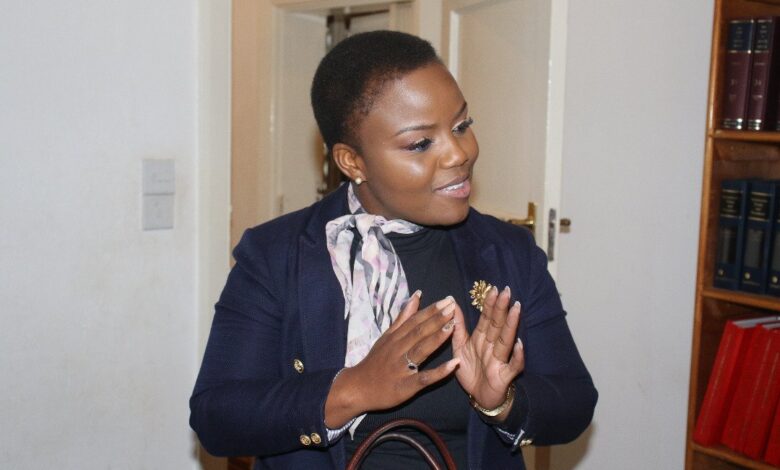
BY MIRIAM MANGWAYA THE March 26, 2022 by-elections in Zimbabwe exposed glaring disparities of a serious gender gap where very few females compared to males managed to win the Parliamentary and local authority seats.
There were 28 vacant National Assembly seats and 122 local authority seats, and male candidates emerged as the majority of winners.
Female candidates only managed to get 15.5% of the 122 local authority seats, and 21.4% of the National Assembly seats, while 78.6% National Assembly seats were occupied by men.
This has exerted pressure on political parties in the country to implement constitutional provisions demanding equal gender representation on nomination of their election candidates.
The Zimbabwe Gender Commission (ZGC) has already made a proposal that in order to ensure that more women are elected into Parliament and local authorities as councillors, political parties must be compelled to ensure that there is gender balance in their nomination process.
In 2020, the ZGC conducted a gender audit to establish representation of women within political parties.
Its findings revealed that among the then three leading political parties which were Zanu PF, MDC Alliance and MDC-T, no political party managed to achieve the 50 -50 gender inclusivity between men and women in the 2018 elections.
ZGC then called for amendment of the Electoral Act to mandate the Zimbabwe Electoral Commission (Zec) to accept only party candidates’ lists of nominees that have a 50-50 gender balance. They said this would guarantee a fair chance for women to compete with men on an equal basis.
- Chamisa under fire over US$120K donation
- Mavhunga puts DeMbare into Chibuku quarterfinals
- Pension funds bet on Cabora Bassa oilfields
- Councils defy govt fire tender directive
Keep Reading
The ZGC wants the Electoral Act to be amended so that it becomes compatible with Section 56 and 80 of the Constitution, which stipulate gender equality.
ZGC chief executive officer Virginia Muwanigwa told NewsDay that the commission had already held meetings with the Parliamentary Portfolio Committee on Justice over the issue.

“We have made our presentations to the Parliamentary Portfolio Committee on Justice, Legal and Parliamentary Affairs where there were discussions around the amendments of the Electoral Act. We need to have a law that ensures that at the end of any election there is an outcome that shows a fair representation of women. The way the electoral processes are held influences the outcome,” Muwanigwa said.
MDC-T leader Thokozani Khupe said: “The Zimbabwean constitution is clear that the state must take all measures, including legislative measures to ensure that both genders are equally represented in all institutions and agencies of government at every level. What is needed now is to give this part of the Constitution a practical meaning by amending the Electoral Act to make the proposal by the Zimbabwe Gender Commission enforceable.”

Khupe said moral persuasion will not work as political parties will argue that women are already accommodated through the proportional representation quota in parliament and in councils.
“This is precisely the reason why I and other women opposed Constitutional Amendment 2 Act because it condemned women to just 21% representation through the proportional representation system in parliament, whereas what is needed is the full implementation of the Constitution which provides for 50% representation of women in parliament and other spheres of government.”
However, a majority of smaller political parties in Zimbabwe are led by women.
Zanu PF spokesperson Christopher Mutsvangwa said the party would not reject any policy that is aimed at promoting gender equality.
“The principle of the party in acknowledging women’s representation in politics dates back to the liberation struggle where we note that women played a very key role for the country to attain independence,” Mutsvangwa said.

“Zanu PF acknowledges the role played by women; not as helpers but at the forefront of the war. We have the likes of the Defence minister Oppah Muchinguri, Information minister Monica Mutsvangwa and many others who were participating in the battle as much as men did. The party is cognisant of the fact that women are very important in issues of governance. That is why we have put in place the Zebra arrangement in the party for all seats that are proportional so that women have a fair chance.
Citizens’ Coalition for Change (CCC) spokesperson Fadzai Mahere encouraged women to stand up and claim their position to “break the gender bias”.
“CCC is very much a proponent of women’s participation in politics and gender parity. We have a gender parity interim committee that was working to ensure that we have 50% representation of women in all structures of the party right from the top, and to also ensure that we field 50% female candidates in the upcoming elections. This is a party constitutional imperative policy and our society must ensure that participation of women is facilitated. Women must all step up to the plate to ensure that they take up space as we step up for progress and break the bias.”
Women’s organisations have put in place various mechanisms that promote women’s participation in politics including capacity building, but they say legislation would be effective to guarantee equal representation.
Women’s Academy for Leadership and Political Excellence (WALPE) executive director Sitabile Dewa bemoaned lack of political will in ensuring that women were fairly represented within political parties.

“We support the issue of amendment of the Electoral Act to make it compatible with the Constitution,” Dewa said.
“Political parties need to be compelled to submit a list which reflects gender balance. Their manifestos speak about gender equality but the results show that they are underrepresented. We have come together as a women’s coalition to fight for this legislation to increase participation of women. If we continue with the path that we are on, it will take us thousands of years to achieve gender equality because there is a lack of political will among all political parties to ensure gender balance.”











